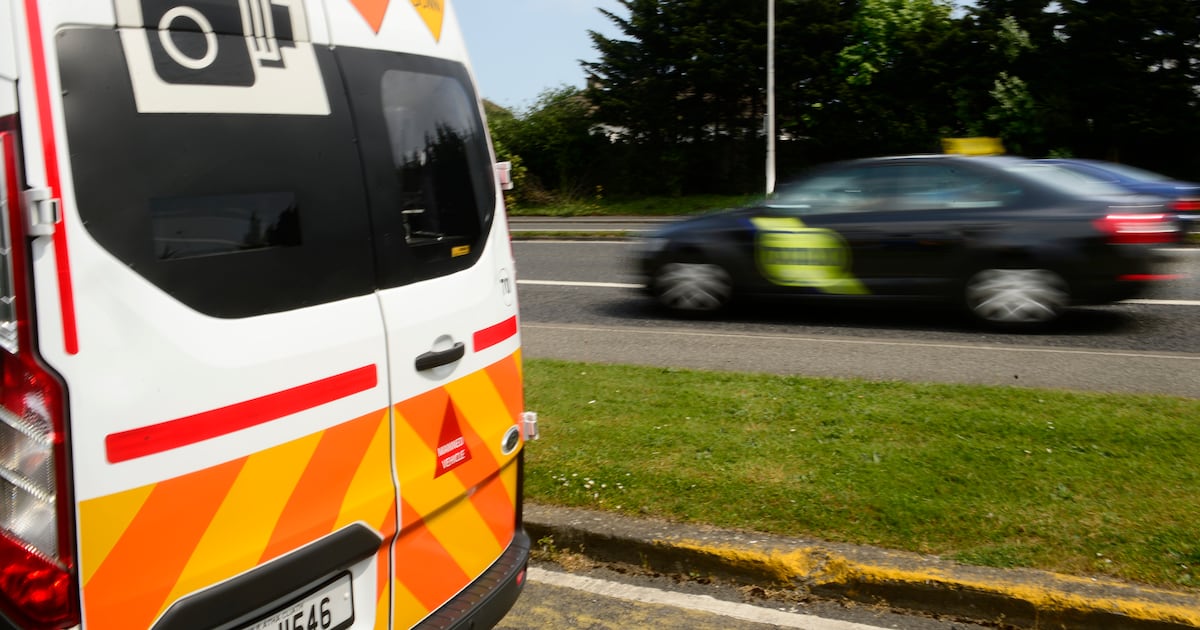Business
Gardaí Spend €18 Million on Speed Cameras, Revenue Falls Short

An investigation revealed that An Garda Síochána, the national police service of Ireland, paid a staggering €18 million to private speed camera operators in 2024. This amount exceeded the revenue generated from speeding fines by €5 million. The findings were disclosed by Irish MEP Cynthia Ní Mhurchú following a request made under Freedom of Information laws, raising questions about the financial effectiveness of the speed camera program.
According to the figures, revenue from speeding fines dropped significantly, with An Garda Síochána collecting €15.3 million in 2023. In that year, the police service paid private operators approximately €13 million, resulting in a surplus of €2.3 million. However, the trend shifted in 2024 as the total revenue from speeding fines fell to €12.9 million. The Gardaí attributed this decline to “enforcement activity and driver compliance,” stating that it was an operational matter not covered by the Freedom of Information request.
Regional Revenue Disparities and Future Plans
The data indicates that Dublin and Tipperary were the top counties for revenue generated by speed cameras during this period. From January 2023 to early June 2025, Dublin collected €6.2 million, while Tipperary generated €3.3 million. Cork followed with €2.9 million, and other counties such as Kildare, Galway, Wicklow, Westmeath, Limerick, Mayo, and Cavan/Monaghan saw decreasing amounts.
Ms. Ní Mhurchú, who serves on the EU’s transport committee, has urged for better placement of speed cameras in high-risk areas, particularly traffic black spots and rural roads where speeding poses a greater threat to road safety. She noted that speeding is a contributing factor in approximately 10 to 15 percent of all crashes and 30 percent of fatal collisions across the EU.
In response to concerns about road safety, the government announced an additional €9 million in funding aimed at deploying up to 100 new speed cameras by the end of 2024. While this investment is welcomed, Ms. Ní Mhurchú emphasized the necessity for ongoing advancements in technology to effectively target those who violate speed regulations.
Proposed Changes to Speed Enforcement
Ms. Ní Mhurchú has also suggested that current speed camera placements should be optimized to focus on areas with the highest risk of road fatalities. Additionally, she proposed the idea of introducing re-education courses as a judicial sanction for repeat offenders caught speeding.
An Garda Síochána has been contacted for further comment regarding the revenue shortfall and future strategies. As the conversation surrounding road safety continues, the effectiveness of speed enforcement measures and their financial implications remain critical points of discussion.
-

 Top Stories3 months ago
Top Stories3 months agoTributes Surge for 9-Year-Old Leon Briody After Cancer Battle
-

 Entertainment4 months ago
Entertainment4 months agoAimee Osbourne Joins Family for Emotional Tribute to Ozzy
-

 Politics4 months ago
Politics4 months agoDanny Healy-Rae Considers Complaint After Altercation with Garda
-

 Top Stories4 months ago
Top Stories4 months agoIreland Enjoys Summer Heat as Hurricane Erin Approaches Atlantic
-

 World5 months ago
World5 months agoHawaii Commemorates 80 Years Since Hiroshima Bombing with Ceremony
-

 Top Stories3 months ago
Top Stories3 months agoNewcastle West Woman Patricia Foley Found Safe After Urgent Search
-

 Top Stories5 months ago
Top Stories5 months agoFianna Fáil TDs Urgently Consider Maire Geoghegan-Quinn for Presidency
-

 World5 months ago
World5 months agoCouple Convicted of Murdering Two-Year-Old Grandson in Wales
-

 World5 months ago
World5 months agoGaza Aid Distribution Tragedy: 20 Killed Amid Ongoing Violence
-

 World5 months ago
World5 months agoAristocrat Constance Marten and Partner Convicted of Infant Murder
-

 Top Stories4 months ago
Top Stories4 months agoClimbing Errigal: A Must-Do Summer Adventure in Donegal
-

 Top Stories4 months ago
Top Stories4 months agoHike Donegal’s Errigal Mountain NOW for Unforgettable Summer Views









